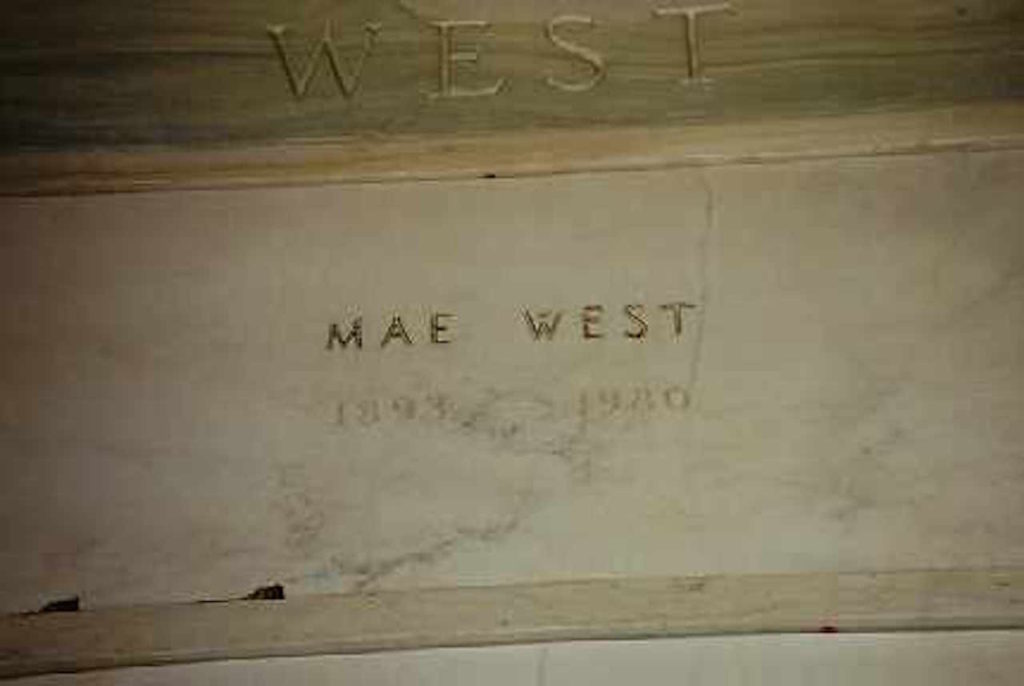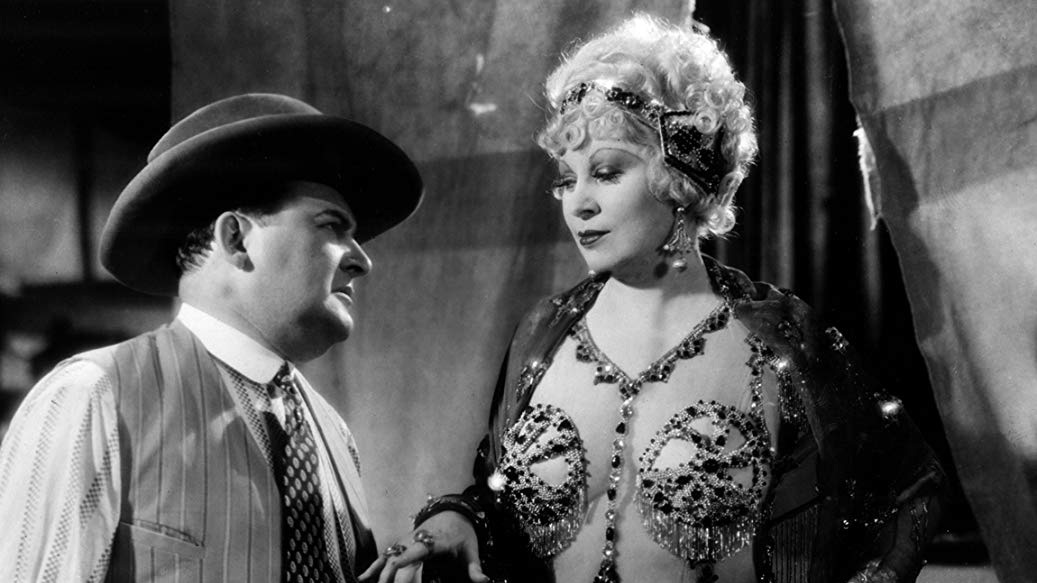Much has been said about legendary comedienne Mae West, but it can never be enough. Now with Kino Lorber’s exciting release of Blu-rays of 9 of her films, we can revel in the sardonic wit, sexual innuendos and hilarious banter created by the woman who single-handedly saved Paramount Studios in the 1930s. One also wonders what movies she could have made if the restrictive Hayes Code hadn’t neutered her Pre-Code outrageousness. She based her films on her own controversial theatrical plays, and molded herself into this take-no-prisoner sexpot on screen, desired by all men, who could joke with her maids about sexual conquests, but always had a heart of gold. The studio paired her with W. C. Fields in My Little Chickadee, and while both West and Fields despised each other, the result is still comic gold. West was a sex positive, crackpot cinematic one-of-a-kind, and the stunning, sensational looking Blu-rays do her right. Other Blu-ray treats this month include Michael Ritchie’s warm and hilarious comedy Smile; the camp classic Mommie Dearest; Sam Fuller’s electrifying Pickup on South Street; a favorite indie horror movie- Toxic Zombies; some great offbeat selections from Vinegar Syndrome.
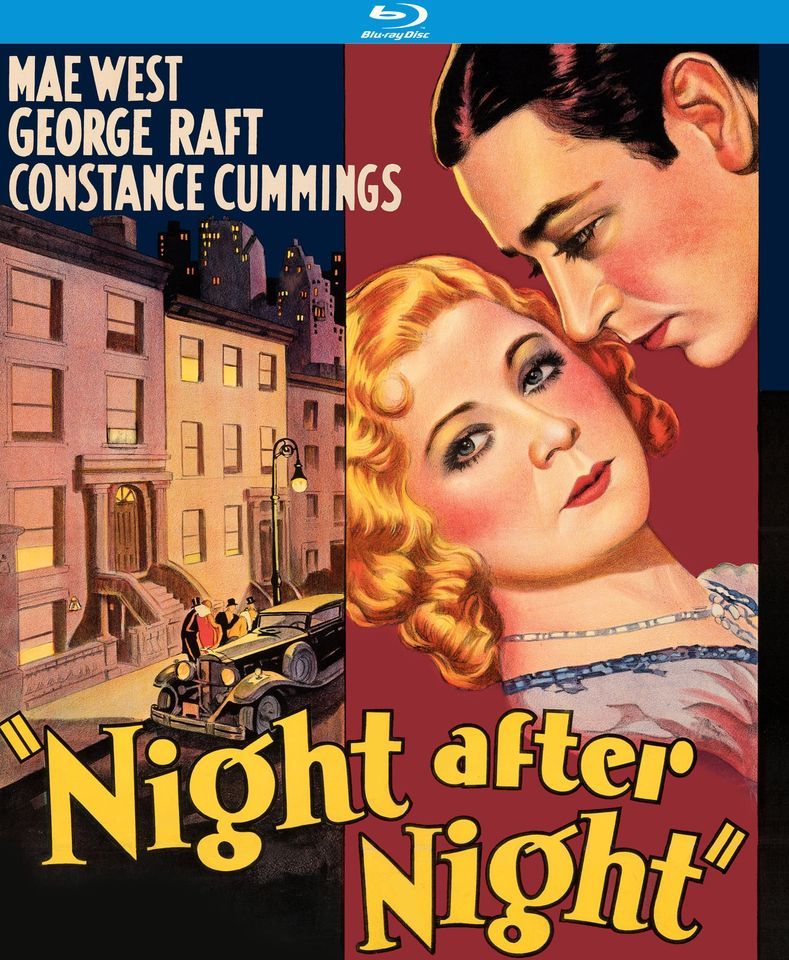
Night After Night (Kino) This was her 1932 debut, co-starring in a George Raft film about an ex-boxer who opens a speak-easy. West sashays in and the hatcheck girl admires her jewelry. “Goodness! What lively diamonds!” to which Mae slyly replies, “Goodness had nothing to do with it.” It’s not surprising she became an instant star- when she’s not on screen the movie lumbers along, When she reappears, it’s heaven. There’s audio commentary by film historians Alexandra Heller-Nicholas & Josh Nelson.
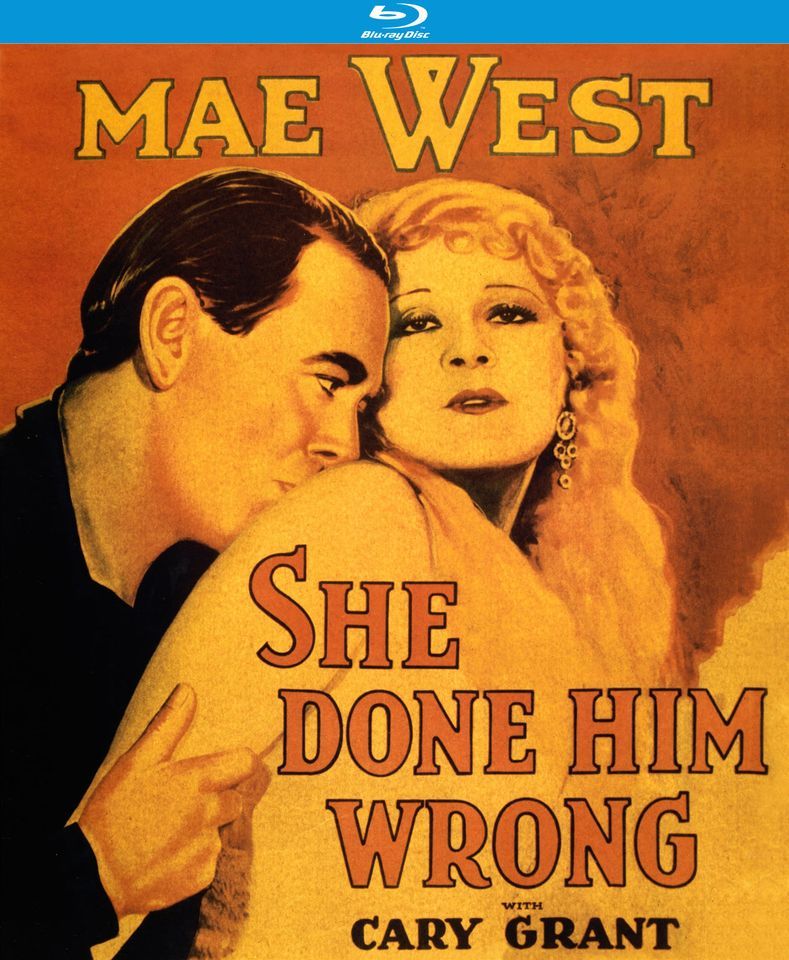
She Done Him Wrong (Kino) West based this wonderful 1933 raucous comedy on her stage triumph Diamond Lil. West plays Lady Lou, a singer in the Gay Nineties juggling many men including a saloon boss, an escaped convict and a handsome Mission House leader Captain Cummings (Cary Grant). This is the film where she eyes Grant up and down as she walks upstairs and says, “You can be had.” And sings “I Wonder Where My Easy Rider’s Gone?” Another ribald exchange is when Grant asks her, “Haven’t you ever met a man that could make you happy?” To which she replies, “Sure, lots of times.” “You bad girl, Grant laughingly chastises her. “Mmmm, you’ll find out!” There are two separate audio commentaries by film historians David Del Valle and Kat Ellinger and an introduction by TCM’s late, great Robert Osborne. Plus, a bonus cartoon: She Done Him Right.
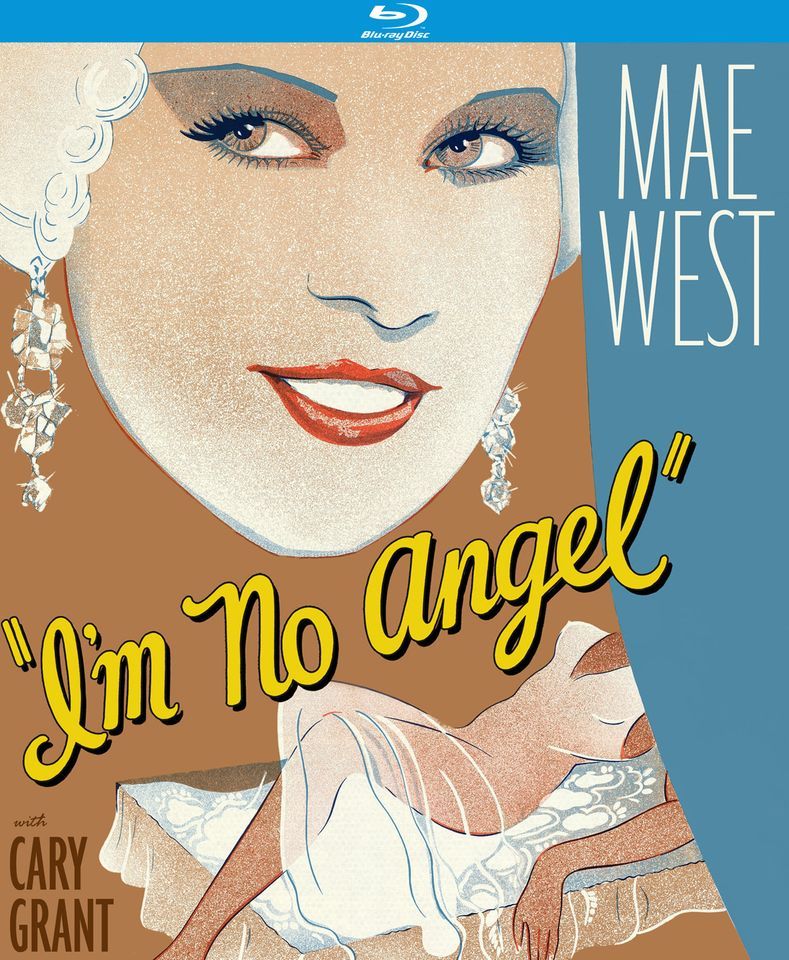
I’m No Angel (Kino) This 1933 film is arguably one of her best comedies. West plays Tira, the lion tamer who puts her head in the lion’s mouth and becomes a sensation with the swells. Men drown her with gifts but she falls for millionaire Cary Grant and ends up defending herself (hilariously) in court in a breach of promise case. Some of her wisecracks are riotously memorable. “It’s not the men in your life that counts. It’s the life in your men.” “What do you do for a living,” she asks a man. “Oh, ah, sort of a politician.” “I don’t like work either,” she tartly replies. And her unforgettable comic aside to her maid, “Beulah, peel me a grape.” There’s audio commentary by film historian Samm Deighan.
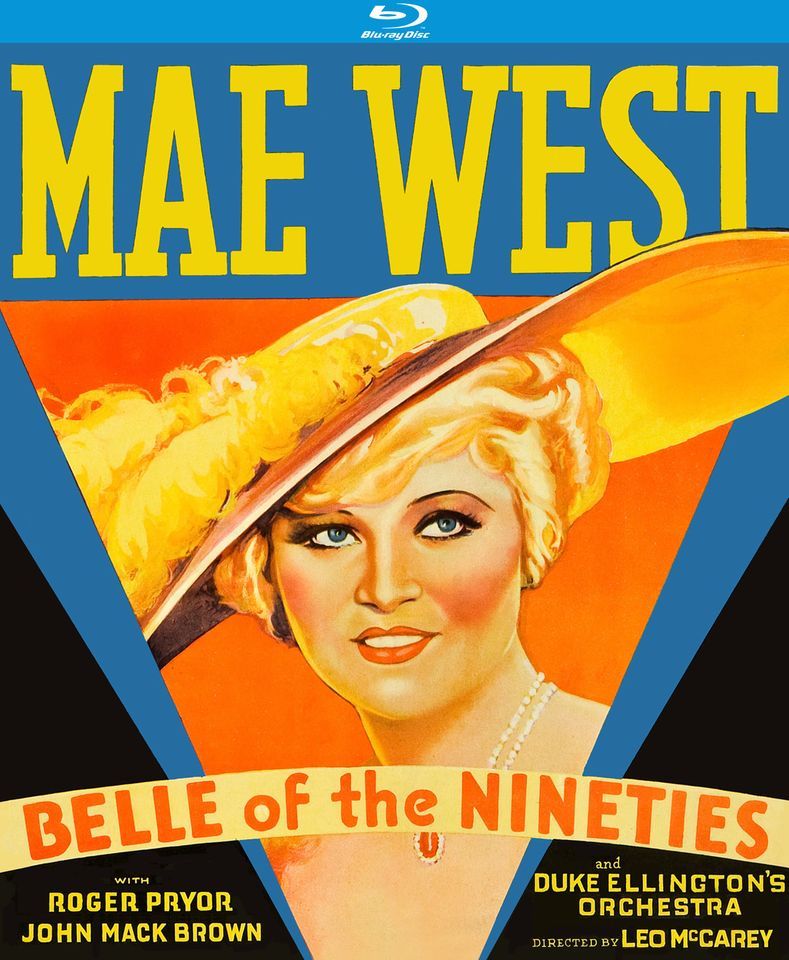
Belle of the Nineties (Kino) West plays Ruby Carter, a singer who flees to New Orleans in the 1890s from her controlling prizefighter boyfriend and becomes the toast of the town. We get to watch her transform into Lady Liberty on stage and she gets to sing St. Louis Blues. Duke Ellington is a piano player in this enjoyable 1934 comedy. With audio commentary by film historian Samm Deighan.
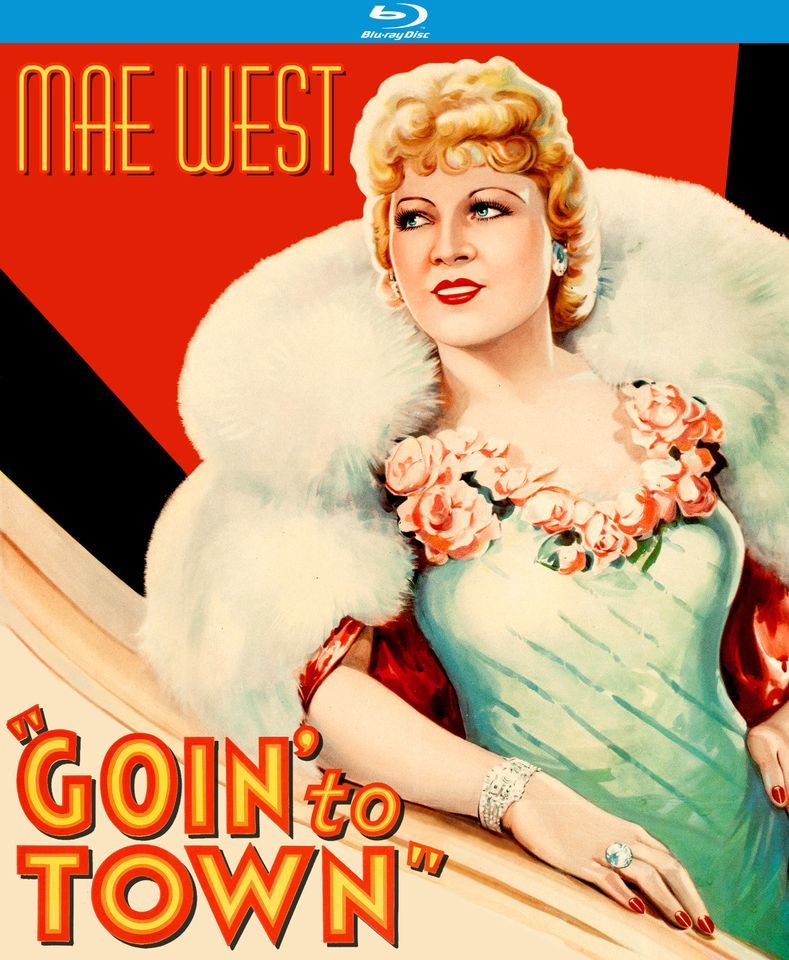
Goin’ To Town (Kino) West plays a dance hall queen who strikes it rich and is determined to force her way into high society to win a man (Paul Cavanagh) in this criminally under-appreciated 1935 comedy. She even mounts an opera of Samson & Delilah where she plays the lead- that scene alone is so screamingly funny I usually have to rewatch it 20 times. “Yeah, for a long time I was ashamed of the way I lived,” she admits to the man she loves. “You mean to say you reformed?” he asks her. “No, I got over being ashamed.” Audio commentary by film historian Kat Ellinger.
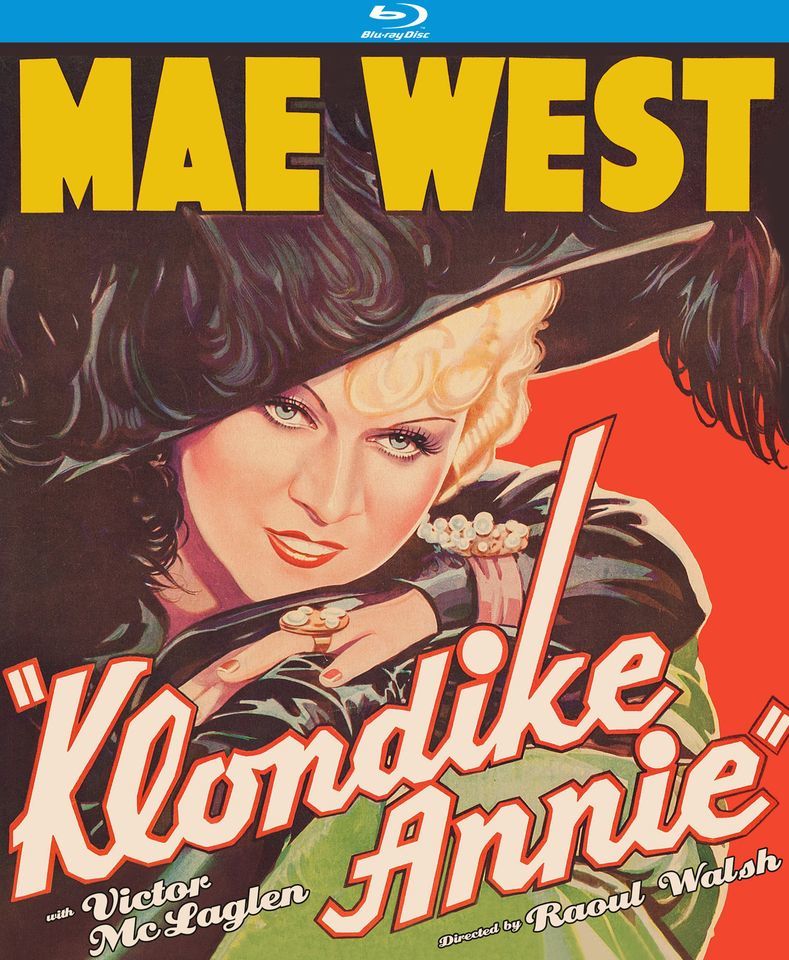
Klondike Annie (Kino) Another high point in West’s illustrious career. In this 1936 gem, she plays the notorious “Frisco Doll,” who flees to Alaska after an accidental murder and takes the identity of a woman who dies onboard ship- Sister Annie, a Salvation Army volunteer. Victor McLaglan plays a randy ship captain and Phillip Reed plays a dashing Mountie as West really tries to fulfill Annie’s dream and ends up successfully overhauling the Mission. “When caught between two evils, I generally like to take to one I never tried,” she wisecracks in this brilliant comedy. Audio commentary by film historians Alexandra Heller-Nicholas & Josh Nelson.
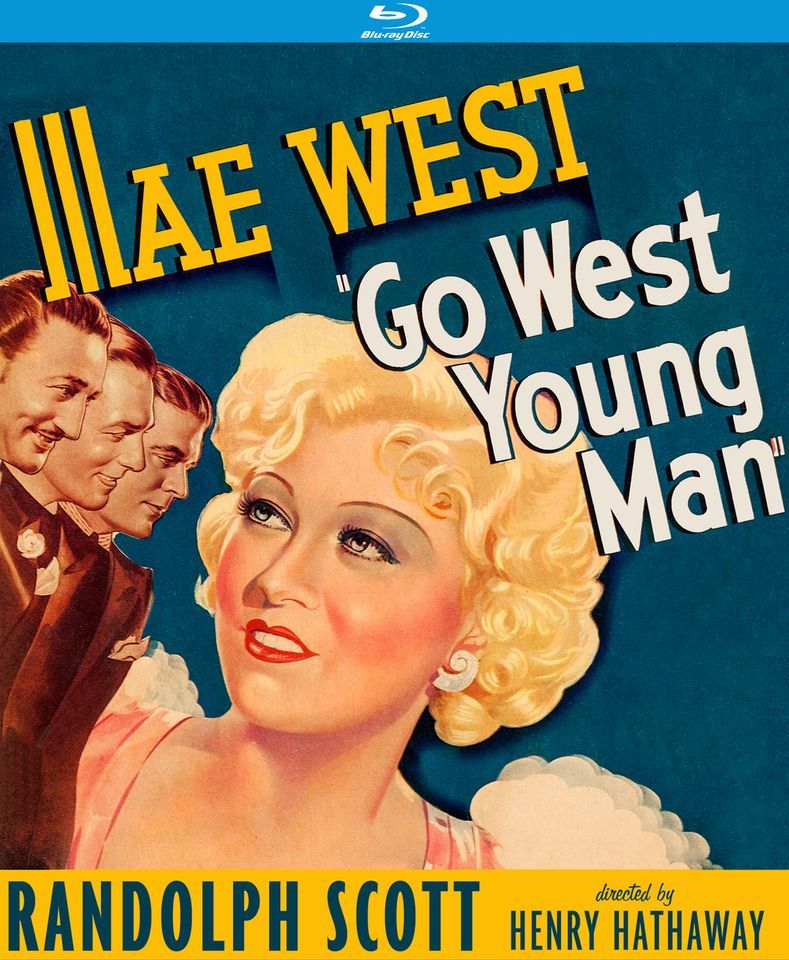
Go West, Young Man (Kino) West plays big movie star Mavis Arden, who gets stranded at a rooming house in the West during a publicity tour in this 1936 film. That’s when she meets hunky mechanic Bud (Randolph Scott). “You’re a great star and can’t take a risk,” she is warned by her press agent (Warren William), “Your private life has got to be an open book.” “I’m just looking for someone to read it,” she wisecracks in this enjoyable romp. Audio commentary by film historian Lee Gambin.
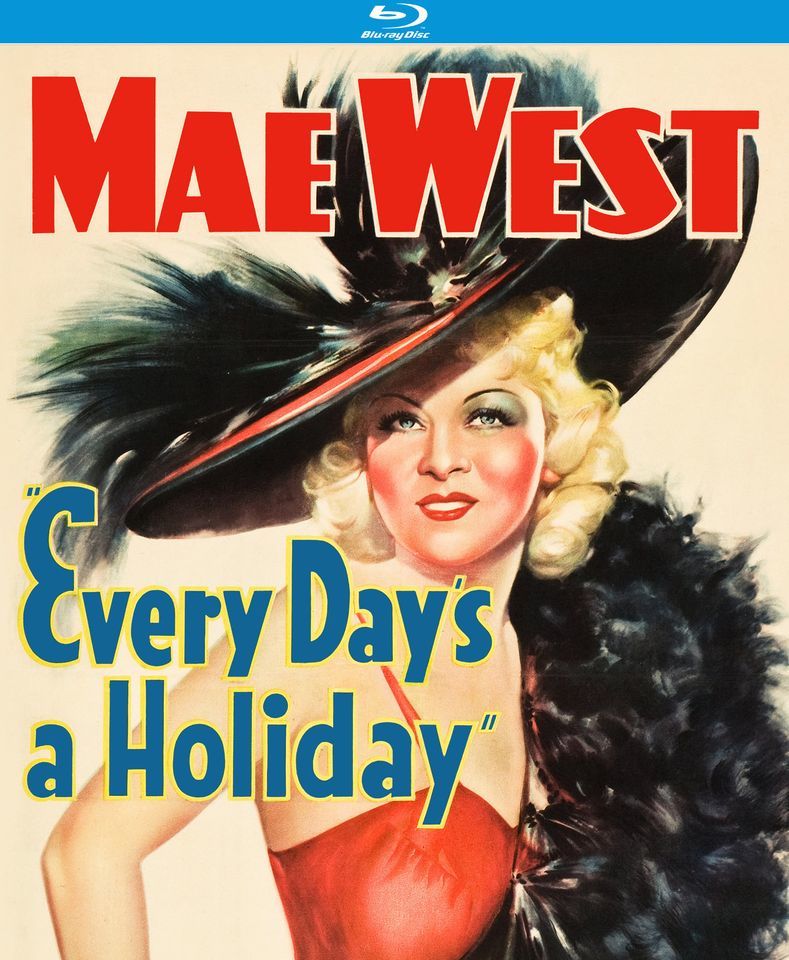
Every Day’s a Holiday (Kino) Mae plays con artist Peaches O’Day, who flees New York in 1899, travels to France and becomes a Parisian sensation- “Mademoiselle Fifi.” When she returns to Manhattan, a crooked mayoral candidate (Lloyd Nolan) tried to close her show down when she rebuffs him. She enthusiastically campaigns for his opponent Captain McCarey (Edmund Lowe) in this fun 1937 comedy. “I always say, keep a diary, and one day it’ll keep you,” Peaches admits. Audio commentary by Kat Ellinger.
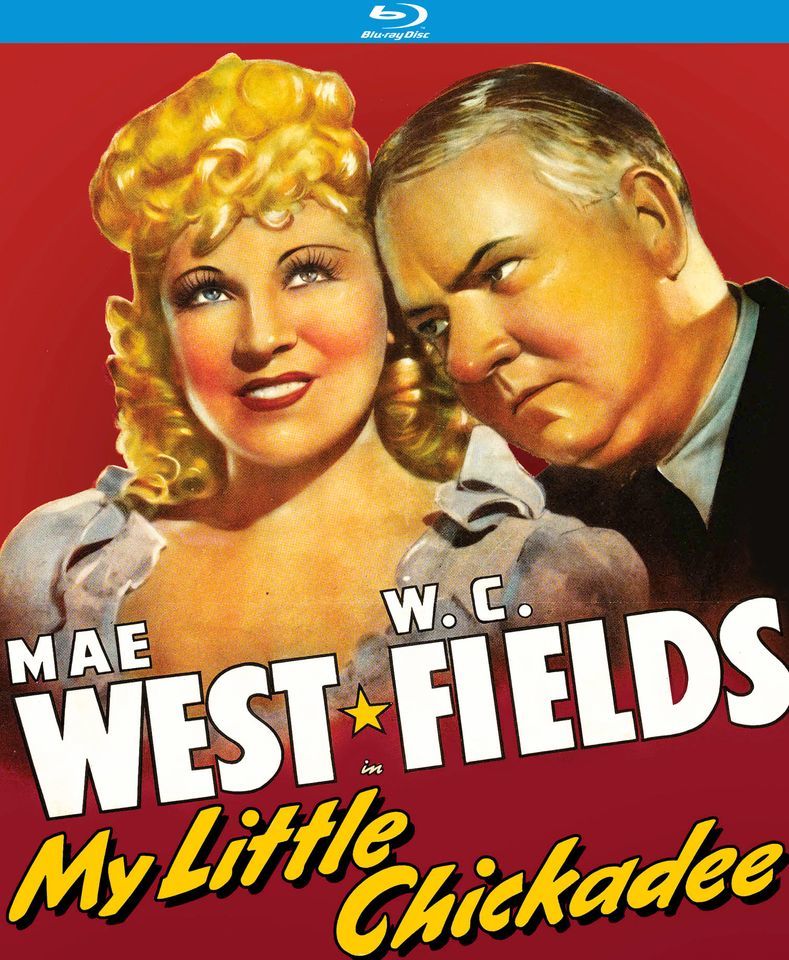
My Little Chickadee (Kino) West plays a gold-digger, run out of another town who encounters a con artist (W. C. Fields) on a train headed west when they are attacked by Native Americans and Mae’s sharp-shooting saves the day. Fields is promoted to Sherriff (he takes credit for the heroic gunplay) when they arrive in Greasewood City. West takes over a schoolteacher’s class of rowdy students in a memorably hilarious sequence. Both West and W. C. Fields were able to adapt the script to highlight their strengths in this breezy 1940 comedy and despite their backstage misery the end result is pretty terrific. Audio commentary by film historians Alexandra Heller-Nicholas & Josh Nelson.
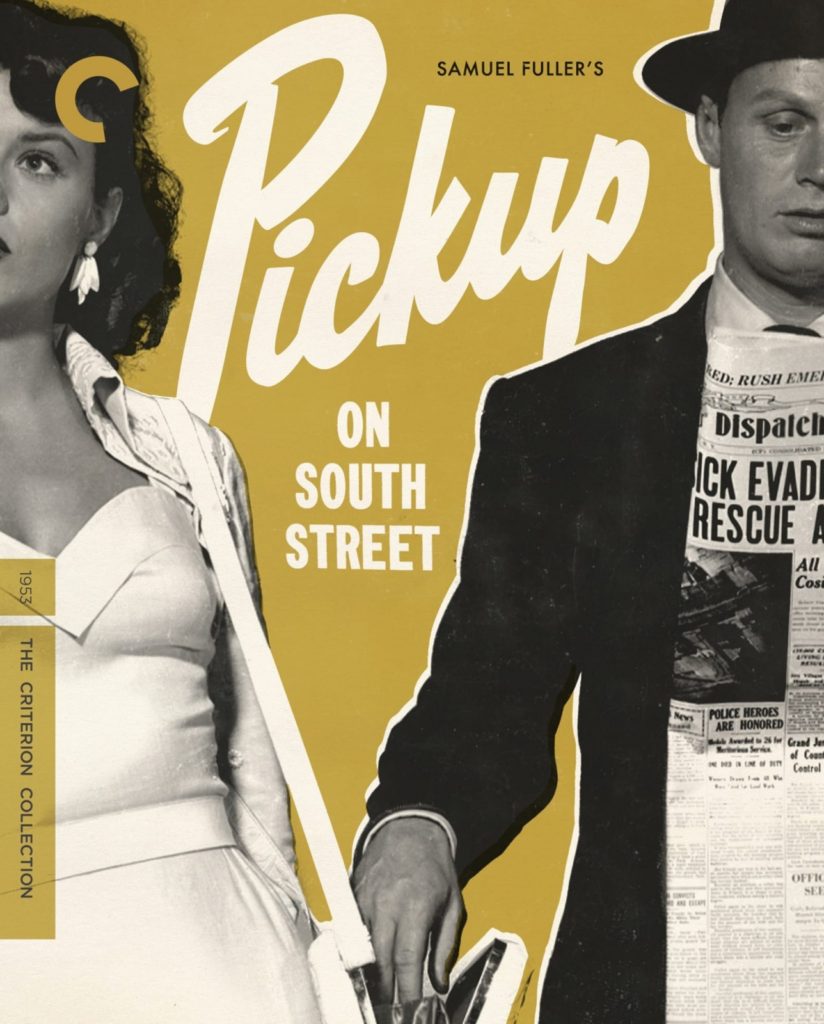
Pickup on South Street (Criterion) Sam Fuller’s gritty 1953 thriller begins in a crowded subway where Skip (Richard Widmark) pickpockets the purse of a prostitute- Candy (Jean Peters). Unfortunately, he retrieves stolen microfilm containing government secrets that Candy is delivering to her shady boyfriend. It also screws up an F.B.I. sting with agents tailing Candy. This eventually evolves into a brutal, nerve-frying film, one of Fuller’s finest, and a high point for Richard Widmark who is just astonishing. Thelma Ritter also shines as tough informer in this film noir great. Extras on this stunning-looking Blu-ray include an archival interview with Sam Fuller; critic Imogen Sara Smith discussing the production of the film; and a Hollywood Radio Theater radio adaptation of the film.

Smile (Fun City Editions) If ever there was a movie that deserved re-discovery it’s Michael Ritchie’s warm, witty, incredibly funny 1975 film about the “Young American Miss pageant in California. Ritchie’s observational humor is satire without mean-spiritedness, and the movie keeps surprising and delighting as it goes along. Big Bob Freelander (Bruce Dern at his best) is the head judge and used car dealer. Brenda DiCarlo (hilarious Barbara Feldon) is the pageant director with a bitter alcoholic for a husband. Annette O’Toole is wonderful as Anaheim’s Young American Miss, and look for a young Melanie Griffith representing Simi Valley. Michael Kidd caustically plays a big Hollywood choreographer reluctantly brought in to add pizzazz to the pageant. Well reviewed by critics at the time the studio dumped the film in theaters with little fanfare and it died. Indiewire rightfully describes Smile as “one of the 10 great overlooked films of the 70s.”
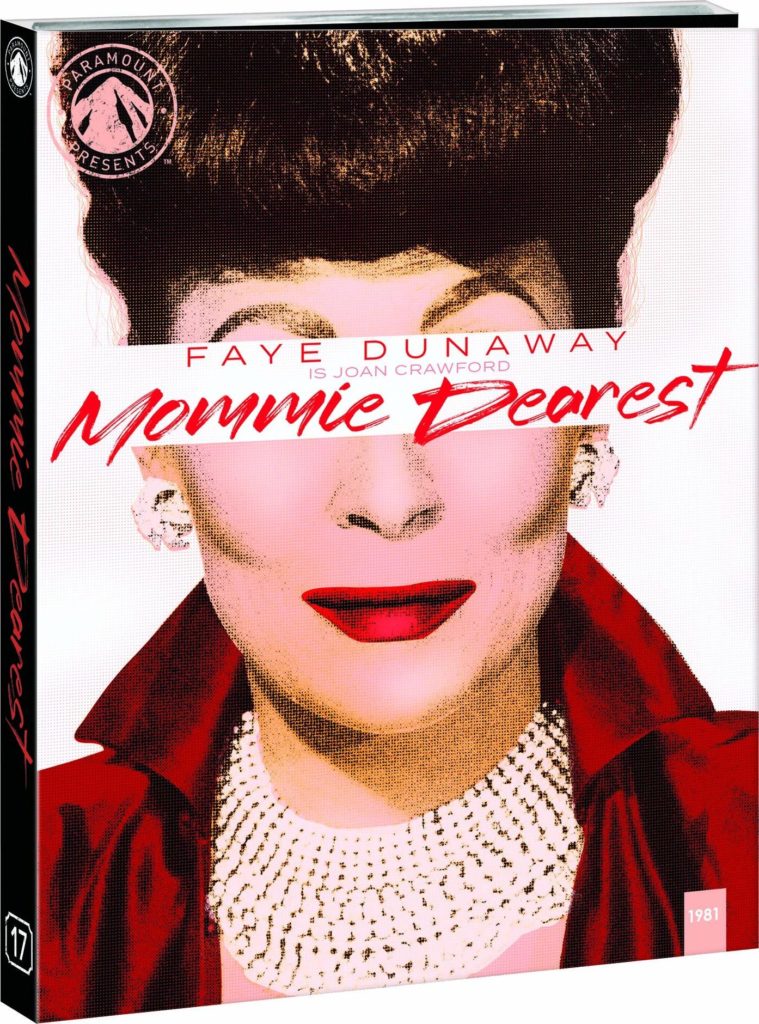
Mommie Dearest (Paramount) Frank Perry’s film adaptation of Christina Crawford’s lacerating tell-all book about her strained relationship with her adoptive mother Joan Crawford was an immediate camp classic at the time it was released. It still is beloved by cult fans who can recite every line in the film, especially Crawford’s drunken nighttime rant at her young daughter “no wire hangers ever!” The thing is, actress Faye Dunaway’s performance as Joan is pretty brilliant- she digs in and creates a gorgon out of Crawford, true, but there is understanding and empathy too. Unfortunately, the movie just inspires howls of inappropriate laughter when it should have elicited dramatic shocks. Faye’s career suffered because of this and woe to the interviewer who brings it up. Included in this Blu-ray is audio commentary by director John Waters; biographer Justin Bozung on director Frank Perry; a new audio commentary by Hedda Lettuce; and collectible packaging with a fold-out image of the film’s poster.
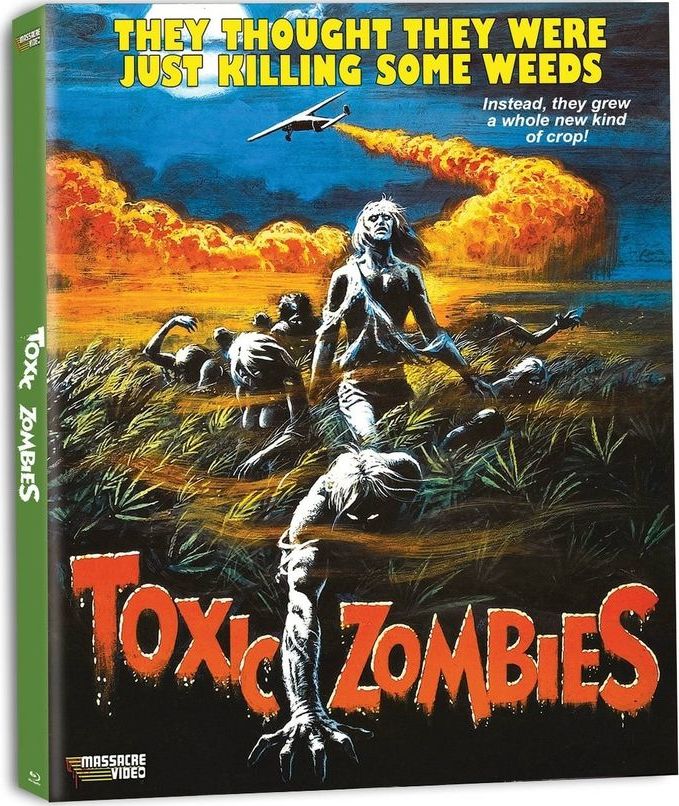
Toxic Zombies (Massacre Video) I have a special spot in my heart for this low budget 1980 horror film about an evil government plot to send a crop-duster with a dangerous toxic spray to coat a field of pot plants grown by some hippies. This was also known as Bloodeaters in theaters (which is the title when I saw it on 42nd Street) and Forest of Fear on video. The herbicide transforms the hippies into bloodthirsty zombies. A young girl and her mentally challenged brother gets chased by the mutants. And a decent government agent (played by the director Charles McCrann) and his girlfriend also go on the run through the woods escaping from the fiends. John Amplas (the star of George Romero’s Martin) plays a corrupt government official. For the director, who tragically died in one of the Towers on 9-11, this was a labor of love. He cast friends, ex-girlfriends and people who hung at one of his favorite Manhattan watering holes- and the result is a lot of gory fun. This is a brand-new master from 4K scans of rare 35mm prints, and includes an extra with the cinematographer David Sperling, one of the cast Claude Scales, and an extensive image gallery.
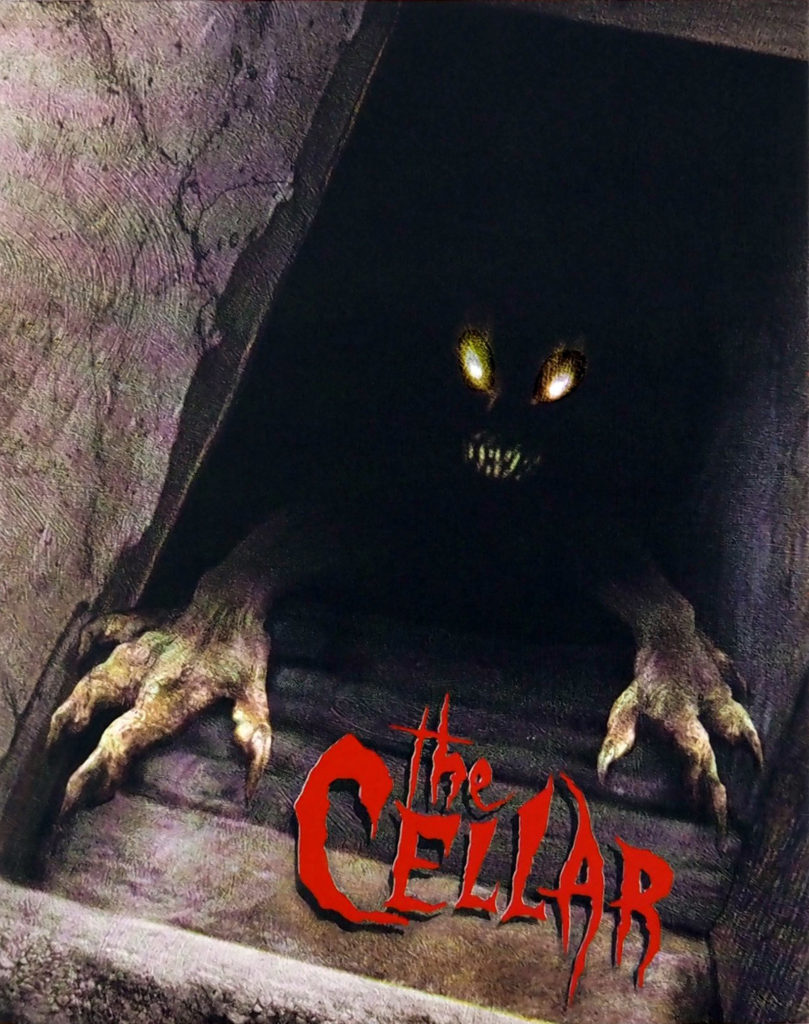
The Cellar (Vinegar Syndrome) Director Kevin Tenney (Night of the Demons) was brought into this troubled production when the original director was fired. Chris Miller plays Willy, a young boy who comes to visit his divorced dad (Patrick Kilpatrick) at his remote desert home, where he is living with his new wife (Suzanne Savoy) and baby daughter. Willy discovers the house is all part of a cursed Native American site and home to a hideous monster that lives in the basement but no one will believe him until it’s too late. The film was taken away from Tenney, rescored, recut and with some dumb, padded added scenes. In the end, it went straight-to-video. Luckily the director kept an uncut director’s print of the film and it’s included on this Blu-ray along with the theatrical cut, both with audio commentary with the director and stars Patrick Kilpatrick and Suzanne Savoy. It’s refreshing to witness a happy ending to this problematic production. And to now be able to see the original cut of this fun monster flick, which was only shown once to the cast and crew.
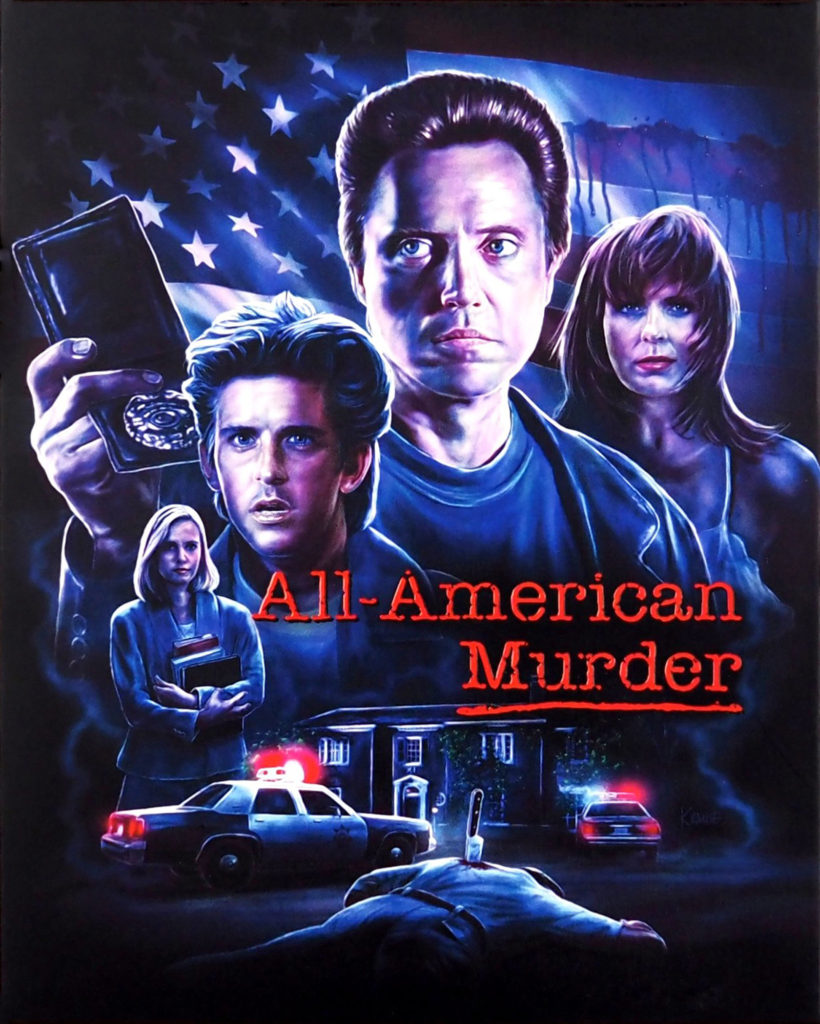
All-American Murder (Vinegar Syndrome) Really offbeat 1991 film about a bad-boy college student Artie (Charlie Schlatter), suspected of setting his beautiful cheerleader girlfriend (Josie Bissett) on fire. But a detective (Christopher Walken) is convinced Artie is innocent and gives him 24 hours to find the real killer. Unfortunately, every suspect Artie discovers in his investigation turns up dead, further implicating him. Shot in 22 days in Oklahoma, the movie is filled with plenty of jokey charm and genuine strangeness (thank you Christopher Walken). The film was directed by Happy Day’s “Potsie” Anson Williams, and according to actor Charlie Schlatter in an entertaining Blu-ray extra, it was originally supposed to be directed by Ken Russell. There’s a nice interview with cinematographer Geoffrey Schaaf and this eccentric, little-seen movie was recently given a 2k scan from the 35mm interpositive.
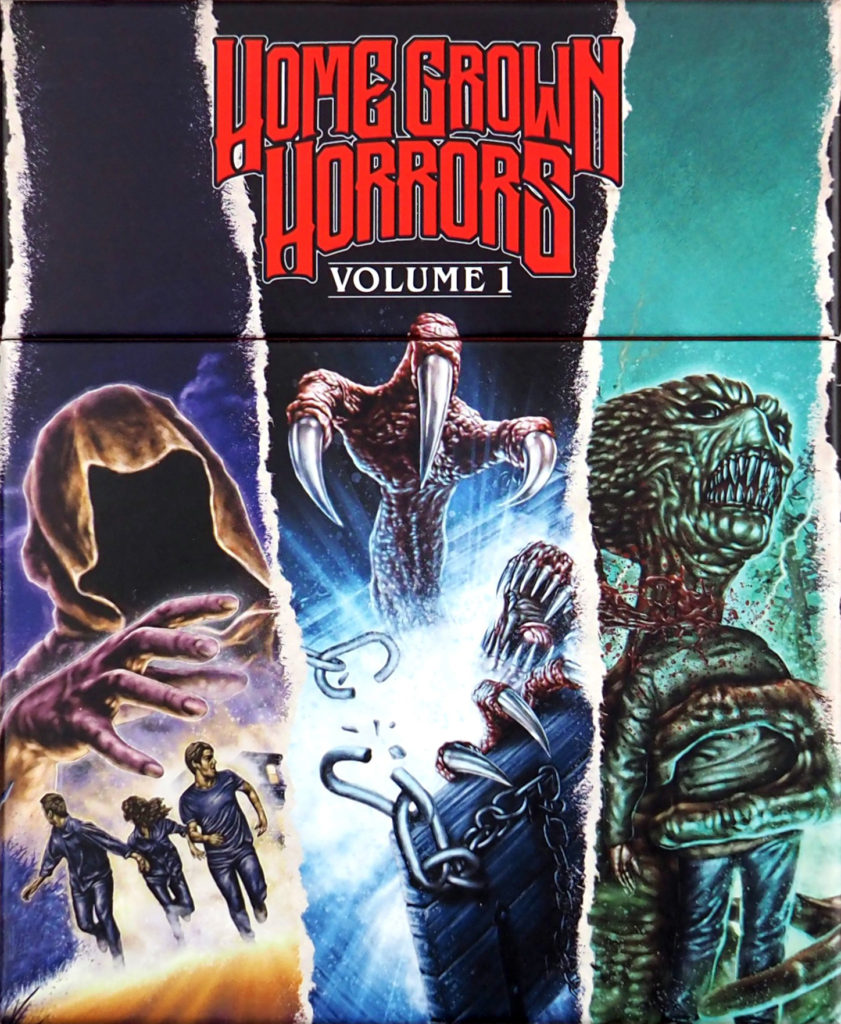
Homegrown Horrors: Volume 1 (Vinegar Syndrome) This project is just great- three no-budget, rurally made, independent American horror films rescued from the bargain bins of VHS and given new restorations with interviews with the directors and actors who slaved for little money to help make their scary movies. Winterbeast (1992) is a loony wonder directed by Christopher Thies about forest rangers investigating a series of disappearances connected with an old Native American legend about demons of the mountain. There’s plenty of goofy, stop-motion animation and gore. If you can disregard logic, coherence and continuity and put up with head-scratching dialogue you are in for a real treat. There’s a fabulous scene with the mysterious, effeminate owner of the Wild Goose Lodge lip-synching to an old record of “Oh, dear! What can the matter be?” in a room full of corpses that will unhinge your jaw. Beyond Dreams Door (1989) was filmed at the University of Ohio by Jay Woelfel and concerns a college student suddenly experiencing a series of bizarre, frightening dreams. He writes them down and gives the transcripts to a series of teachers who begin to experience his nightmares themselves. What’s interesting about the film is that it really is filled with some good ideas and clever, creepy touches. Fatal Exam (1989) is another fascinating wonder shot in St. Louis, Missouri by Jack Snyder, that took many years to complete. It’s about Nick, a doughy college student who agrees to participate in an experiment for final exam of his Parapsychology course. He and his sister; her boyfriend (forever playing with a yo-yo) and a few other students are to camp out over the weekend in an old house where Malcolm Nostrand massacred his family years ago. They are looking for supernatural evidence but get more than they bargained for, ending up tied up in the basement as sacrifices to a demonic demon (done in clever, stop-motion animation). When you hear the stories of the difficult sagas of bringing these films to being, you’re happy that Vinegar Syndrome has rescued them from obscurity. I can’t wait for the 2nd volume!
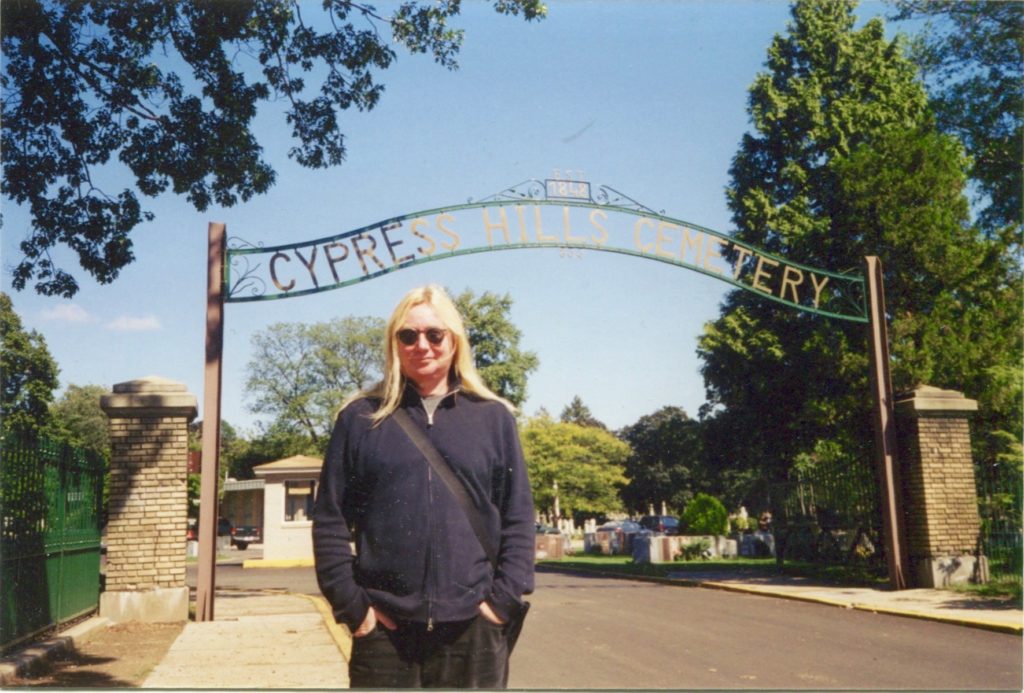
I think you should also definitely pay homage to the great Mae West and visit her final resting place at the Cypress Hills Cemetery in Brooklyn. I did and admit it was a religious experience.
